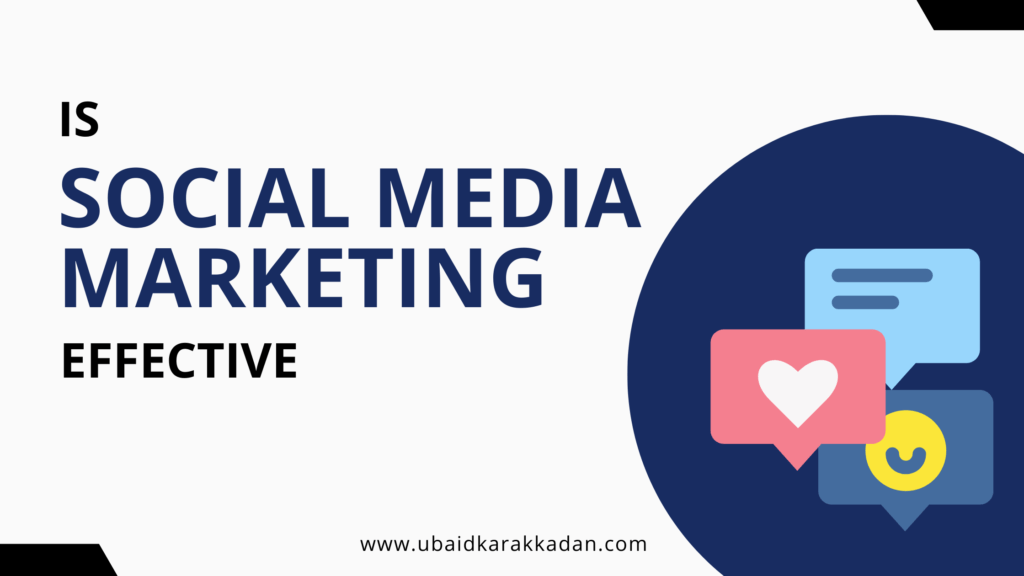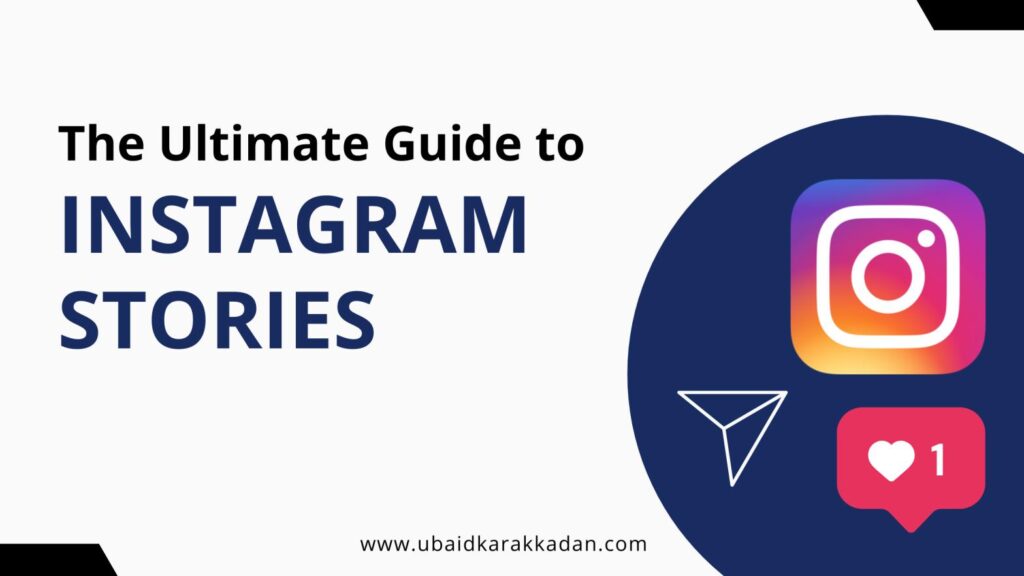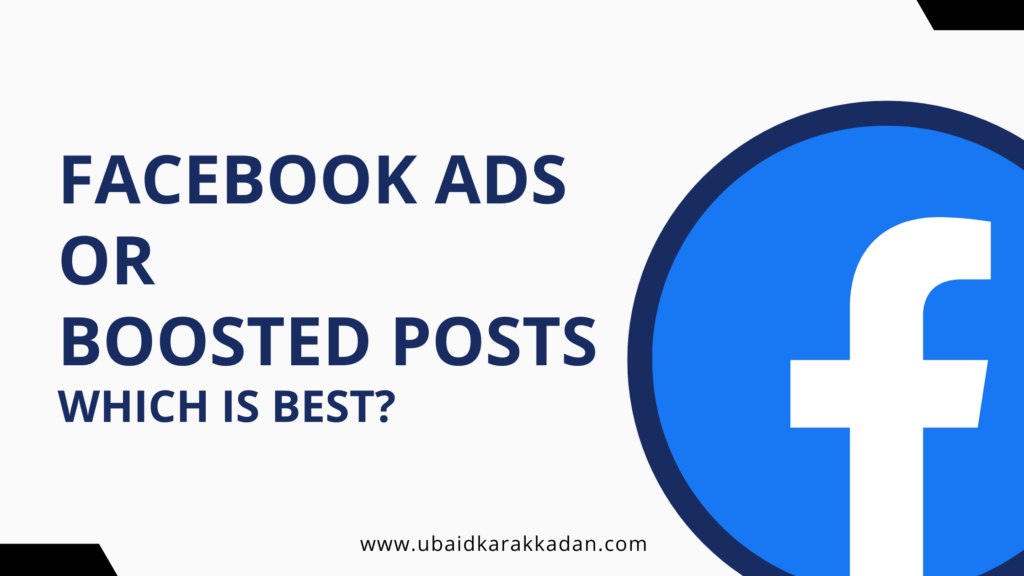
In today’s digitally connected world, social media has become an integral part of our lives. From staying in touch with friends and family to consuming news and entertainment, social media platforms have revolutionized the way we interact with each other and the world around us. But beyond personal use, Is social media marketing effective for businesses? In this article, we delve into the world of social media marketing and explore its effectiveness as a powerful strategy for boosting your brand presence, engaging with your audience, and ultimately, outranking your competitors in the fiercely competitive digital landscape.
Table of Contents
Understanding Social Media Marketing
Social Media Marketing (SMM) refers to the use of various social media platforms to promote a brand, product, or service. Businesses harness the immense user base of platforms such as Facebook, Twitter, Instagram, LinkedIn, and others to connect with their target audience, drive traffic to their websites, and generate leads. SMM encompasses a wide range of activities, including posting engaging content, running targeted ad campaigns, and interacting with followers through comments, direct messages, and stories.
Is Social Media Marketing Effective?
The question that echoes through the minds of business owners and marketers alike is whether social media marketing truly lives up to its hype. The answer is a resounding YES! Social media marketing is an indispensable tool for modern businesses looking to thrive in a highly competitive online environment. By harnessing the power of social media platforms, businesses can significantly boost their brand presence, engage with their target audience, and drive conversions.
The Power of Brand Awareness
One of the fundamental benefits of utilizing social media for your business is the unparalleled potential to increase brand awareness. By creating a strong and consistent brand presence across social media platforms, you can effectively expose your business to a vast audience. When your target customers come across your brand repeatedly on their social feeds, they become more familiar with your products or services, fostering a sense of trust and credibility.
Engagement: Forging Deeper Connections
Engagement is the key to building meaningful relationships with your audience. Social media provides an excellent platform to engage with your customers on a personal level, fostering loyalty and advocacy. Responding promptly to comments and messages, addressing customer inquiries, and actively participating in discussions demonstrate your commitment to customer satisfaction and reinforces a positive brand image.
Driving Traffic and Conversions
While brand awareness and engagement are crucial, driving traffic to your website and converting visitors into customers is the ultimate goal of any marketing strategy. Social media allows you to post compelling content that directs users to your website, blog, or online store. By strategically placing call-to-action (CTA) buttons and links, you can guide potential customers through the sales funnel, increasing the likelihood of conversions.
Social Media Advertising: Targeted and Cost-Effective
In addition to organic reach, social media platforms offer sophisticated advertising options that allow you to target specific demographics, interests, behaviors, and locations. This level of precision ensures that your ads reach the right audience, maximizing your return on investment (ROI). Compared to traditional advertising methods, social media advertising is generally more cost-effective, making it an attractive option for businesses of all sizes.
Measuring Success with Analytics
To gauge the effectiveness of your social media marketing efforts, it’s essential to rely on data-driven insights. Most social media platforms provide built-in analytics tools that offer valuable metrics, such as reach, engagement, impressions, and click-through rates. These metrics allow you to measure the performance of your campaigns and make data-backed decisions to optimize your marketing strategy continually.
Social Media and Search Engine Rankings
Now, you might wonder how social media activity impacts your search engine rankings. While direct evidence of a causal relationship is limited, social media can indirectly influence SEO in several ways:
- Content Sharing: When your content gets shared and linked to on social media, it can lead to increased backlinks and improved domain authority, which are crucial factors in search engine rankings.
- Brand Mentions: Mentions of your brand on social media help build its online presence and could indirectly contribute to search engine visibility.
- Click-Through Rate (CTR): Engaging and shareable social media posts can drive more traffic to your website, potentially leading to a higher CTR, which search engines often consider in their ranking algorithms.
Also Read: Best Social Media ROI Tracking Tools-Maximize Social Media ROI
Best Practices for Effective Social Media Marketing
To maximize the impact of your social media marketing efforts and increase your chances of outranking competitors, consider implementing these best practices:
1. Identify Your Target Audience
Understand your target audience’s preferences, pain points, and behaviors. Tailor your content to resonate with their interests and needs.
2. Consistent Branding
Maintain a cohesive brand identity across all social media platforms, including logos, colors, and tone of voice.
3. Diversify Content
Experiment with various types of content, such as videos, images, infographics, and blog posts, to keep your audience engaged.
4. Engage Regularly
Be proactive in responding to comments, messages, and mentions. Foster a two-way conversation with your audience to build stronger relationships.
5. Track Performance
Use social media analytics to track the performance of your campaigns. Identify successful strategies and areas for improvement.
6. Leverage Influencer Marketing
Partner with influencers in your industry to expand your reach and tap into their followers’ trust.
Conclusion
Social media marketing is undeniably a powerful tool that can significantly impact your business’s success. By building brand awareness, fostering engagement, driving traffic, and leveraging analytics, you can optimize your social media strategy to outrank your competitors and achieve long-term success. Embrace the digital landscape, adapt to ever-changing algorithms, and keep your audience at the heart of your efforts. Remember, social media marketing is not a one-size-fits-all approach, so continuously experiment and refine your strategy to achieve the best results.
Frequently Asked Questions (FAQs)
- Q: How crucial is social media marketing for small businesses?
- A: Social media marketing is especially vital for small businesses as it provides a cost-effective way to reach a wide audience and compete with larger enterprises.
- Q: Can social media marketing drive real business results?
- A: Yes, social media marketing can drive tangible business outcomes such as increased website traffic, lead generation, and higher sales conversions.
- Q: Which social media platform is best for B2B marketing?
- A: LinkedIn is considered one of the best platforms for B2B marketing, as it caters to a professional audience and offers various networking opportunities.
- Q: How often should I post on social media?
- A: The frequency of posting depends on the platform and your audience’s preferences. Generally, a consistent posting schedule is recommended without overwhelming your followers.
- Q: Can social media marketing replace traditional advertising?
- A: While social media marketing is powerful, it’s best used in conjunction with traditional advertising to create a comprehensive marketing strategy.
- Q: Is social media marketing only for young audiences?
- A: No, social media platforms cater to diverse age groups, making it a valuable tool for reaching audiences of all ages.
How crucial is social media marketing for small businesses?
Social media marketing is especially vital for small businesses as it provides a cost-effective way to reach a wide audience and compete with larger enterprises.
Can social media marketing drive real business results?
Yes, social media marketing can drive tangible business outcomes such as increased website traffic, lead generation, and higher sales conversions.
Which social media platform is best for B2B marketing?
LinkedIn is considered one of the best platforms for B2B marketing, as it caters to a professional audience and offers various networking opportunities.
How often should I post on social media?
The frequency of posting depends on the platform and your audience’s preferences. Generally, a consistent posting schedule is recommended without overwhelming your followers.
Can social media marketing replace traditional advertising?
While social media marketing is powerful, it’s best used in conjunction with traditional advertising to create a comprehensive marketing strategy.
Is social media marketing only for young audiences?
No, social media platforms cater to diverse age groups, making it a valuable tool for reaching audiences of all ages




